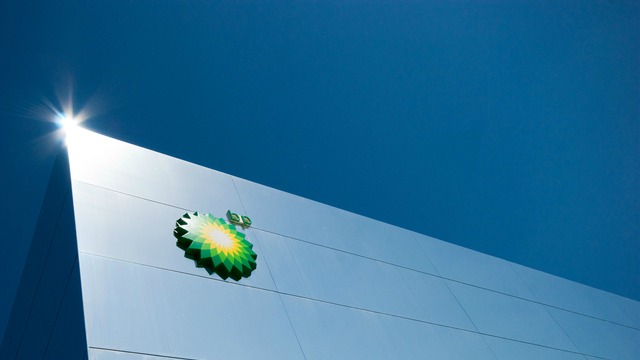ii view: BP beefs up its finances
BP has achieved a target of $15bn of disposals a year ahead of plan, but what of the dividend payment?
29th June 2020 16:00
by Keith Bowman from interactive investor
BP has achieved a target of $15bn of disposals a year ahead of plan, but what of the dividend payment?

BP agrees to sell its petrochemicals business to INEOS
Chief executive Bernard Looney said:
"This is another significant step as we steadily work to reinvent BP. I am very grateful to our petrochemicals team for what they have achieved over the years and their commitment to BP. I recognise this decision will come as a surprise and we will do our best to minimise uncertainty. I am confident however that the businesses will thrive as part of INEOS, a global leader in petrochemicals.
"Strategically, the overlap with the rest of BP is limited and it would take considerable capital for us to grow these businesses. As we work to build a more focused, more integrated BP, we have other opportunities that are more aligned with our future direction. Today's agreement is another deliberate step in building a BP that can compete and succeed through the energy transition."
ii round-up:
Oil giant BP (LSE:BP.) today agreed to sell its petrochemicals business to INEOS for $5 billion (£4.1 billion), strengthening its finances and delivering a targeted $15 billion of disposals a year ahead of plan.
BP shares rose by more than 3% in UK trading following the surprise announcement. The gain contrasts with a near one-third fall in the share price year-to-date. Shares of rival Royal Dutch Shell (LSE:RDSB) are down by more than 40% during 2020.
The oil price has floundered in 2020 as Saudi Arabia and Russia failed to agree on supply cuts and Covid-19 savaged demand.
Under the terms of the agreement, INEOS will pay BP a deposit of $400 million and will a further $3.6 billion on completion. An additional $1 billion will be deferred and paid in four separate instalments. Subject to approval, the sale is expected to complete by the end of the year.
The business being sold makes both aromatics, used in polymers for plastic bottles and packaging, and acetyles, used in paints, solvents and pharmaceuticals. It employs around 1,700 staff worldwide, all of which are expected to transfer to INEOS.
The announcement marks a further reshaping of BP under relatively new chief executive Bernard Looney. Just weeks ago, it outlined plans to write-down the value of plant, equipment and exploration intangibles by up to $17.5 billion as of its coming second-quarter results, as it looks to refocus towards a lower-carbon greener future.
In February, BP announced plans to become a net zero carbon company by 2050 or sooner, in line with the 2015 Paris climate change agreement.
Second-quarter results are scheduled for 4 August.
ii view:
BP operates in more than 75 countries across the world. It has in recent years been navigating a multitude of difficulties and opportunities. Payments in relation to the disastrous 2010 Gulf of Mexico oil spillage are still being made, while its previous acquisition of assets from miner BHP (LSE:BHP) helped fuel an earlier rise in net debt.
Now, Covid-19 has hit the world economy for six. BP earlier this month revised down its long-term expectations for fuel prices in the wake of the pandemic. Lifestyle adjustments made because of the virus, including more working from home and less commuting, are also underlining the possibilities for change required in order to meet climate change initiatives previously agreed by governments around the world.
For investors, today’s sale sees BP giving up an area of expected growth. Oil demand growth going into plastics is expected to help counterbalance falling future road vehicle consumption, according to a 2018 report by the International Energy Agency. A historic income yield of over 10%, and a cut by rival Shell, has also raised questions over the sustainability of the dividend payment.
But today’s deal further strengthens BP’s finances, adding to other previously detailed measures such as cutting costs, and perhaps easing further concerns over the dividend. For now, while worries regarding the dividend are likely to persist, CEO Bernard Looney looks to be making further progress.
Positives:
- Attractive dividend payment (not guaranteed)
- Cash conserving actions being taken
- Accelerating environmental changes
Negatives:
- Charges of up to $17.5 billion to hit Q2 results
- Q1 net debt up 13% to £51 billion
- Second-quarter upstream production expected to fall
The average rating of stock market analysts:
Buy
These articles are provided for information purposes only. Occasionally, an opinion about whether to buy or sell a specific investment may be provided by third parties. The content is not intended to be a personal recommendation to buy or sell any financial instrument or product, or to adopt any investment strategy as it is not provided based on an assessment of your investing knowledge and experience, your financial situation or your investment objectives. The value of your investments, and the income derived from them, may go down as well as up. You may not get back all the money that you invest. The investments referred to in this article may not be suitable for all investors, and if in doubt, an investor should seek advice from a qualified investment adviser.
Full performance can be found on the company or index summary page on the interactive investor website. Simply click on the company's or index name highlighted in the article.